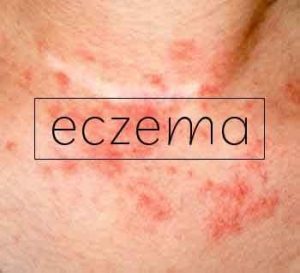- Home
- Editorial
- News
- Practice Guidelines
- Anesthesiology Guidelines
- Cancer Guidelines
- Cardiac Sciences Guidelines
- Critical Care Guidelines
- Dentistry Guidelines
- Dermatology Guidelines
- Diabetes and Endo Guidelines
- Diagnostics Guidelines
- ENT Guidelines
- Featured Practice Guidelines
- Gastroenterology Guidelines
- Geriatrics Guidelines
- Medicine Guidelines
- Nephrology Guidelines
- Neurosciences Guidelines
- Obs and Gynae Guidelines
- Ophthalmology Guidelines
- Orthopaedics Guidelines
- Paediatrics Guidelines
- Psychiatry Guidelines
- Pulmonology Guidelines
- Radiology Guidelines
- Surgery Guidelines
- Urology Guidelines
Reasons for eczema susceptibility uncovered

Scientists have uncovered evidence that a deficiency in the skin's barrier is key to triggering eczema.
The team at Newcastle University, in collaboration with scientists at Stiefel, a GSK company, have identified how a key skin barrier protein called filaggrin impacts on other proteins and pathways in the skin, which in turn drive the development of eczema.
This has also lead them to identify potential targets for future drug development which could treat the underlying cause rather than treating the symptoms.
Common condition
Atopic eczema is one of the commonest skin conditions in the UK, affecting up to 10% of adults and 20% of children in the UK. It's more common in children, often developing before their first birthday and often persists into adulthood with severe itching that has profound effects on well-being and may lead to sleep disturbance.
The research builds on the important discovery by scientists in Dundee which showed that lack of the protein filaggrin in the skin caused an inherited dry skin condition known as ichthyosis vulgaris that is strongly linked to the development of atopic eczema, as well as other allergic diseases such as hayfever and asthma.
Nick Reynolds, Professor of Dermatology at Newcastle University and who works within the Newcastle Hospitals NHS Foundation Trust is the lead investigator of the study. He said: "We have shown for the first time that loss of the filaggrin protein alone is sufficient to alter key proteins and pathways involved in triggering eczema. This research reinforces the importance of filaggrin deficiency leading to problems with the barrier function in the skin and predisposing someone to eczema."
New skin model
Publishing in the Journal of Allergy and Clinical Immunology (JACI), researchers at Newcastle University, in collaboration with scientists at Stiefel, a GSK company, report on their development of a human model system. In this, the upper layer of skin (epidermis) was modified, using molecular techniques, to become filaggrin-deficient, directly mimicking the situation observed in the skin of patients with atopic eczema.
This model enabled the team to discover proteins and signalling pathways directly down-stream of filaggrin, and most importantly, identified a number of key regulatory mechanisms. These included regulators of inflammatory signalling, cell structure, barrier function and stress response. These pathways were found to map to those networks observed in the skin of people with active eczema.
This mapping provides researchers with new understanding of the mechanisms involved and suggests targets for future drug development.
Nina Goad of the British Association of Dermatologists said: "This latest research from Newcastle is crucial as it expands on our knowledge of how filaggrin impacts on other proteins and pathways in the skin, which in turn trigger the disease. This type of research allows scientists to develop treatments that target the actual root cause of the disease, rather than just managing its symptoms. Given the level of suffering eczema causes, this is a pivotal piece of research."
You can read the full Article by clicking on the link :
Martina S. Elias, Heather A. Long, Carla F. Newman, Paul A. Wilson, Andrew West, Paul J. McGill, Keith C. Wu, Michael J. Donaldson, Nick J. Reynolds. Proteomic analysis of filaggrin deficiency identifies molecular signatures characteristic of atopic eczema. Journal of Allergy and Clinical Immunology, 2017; DOI: 10.1016/j.jaci.2017.01.039

Disclaimer: This site is primarily intended for healthcare professionals. Any content/information on this website does not replace the advice of medical and/or health professionals and should not be construed as medical/diagnostic advice/endorsement or prescription. Use of this site is subject to our terms of use, privacy policy, advertisement policy. © 2020 Minerva Medical Treatment Pvt Ltd